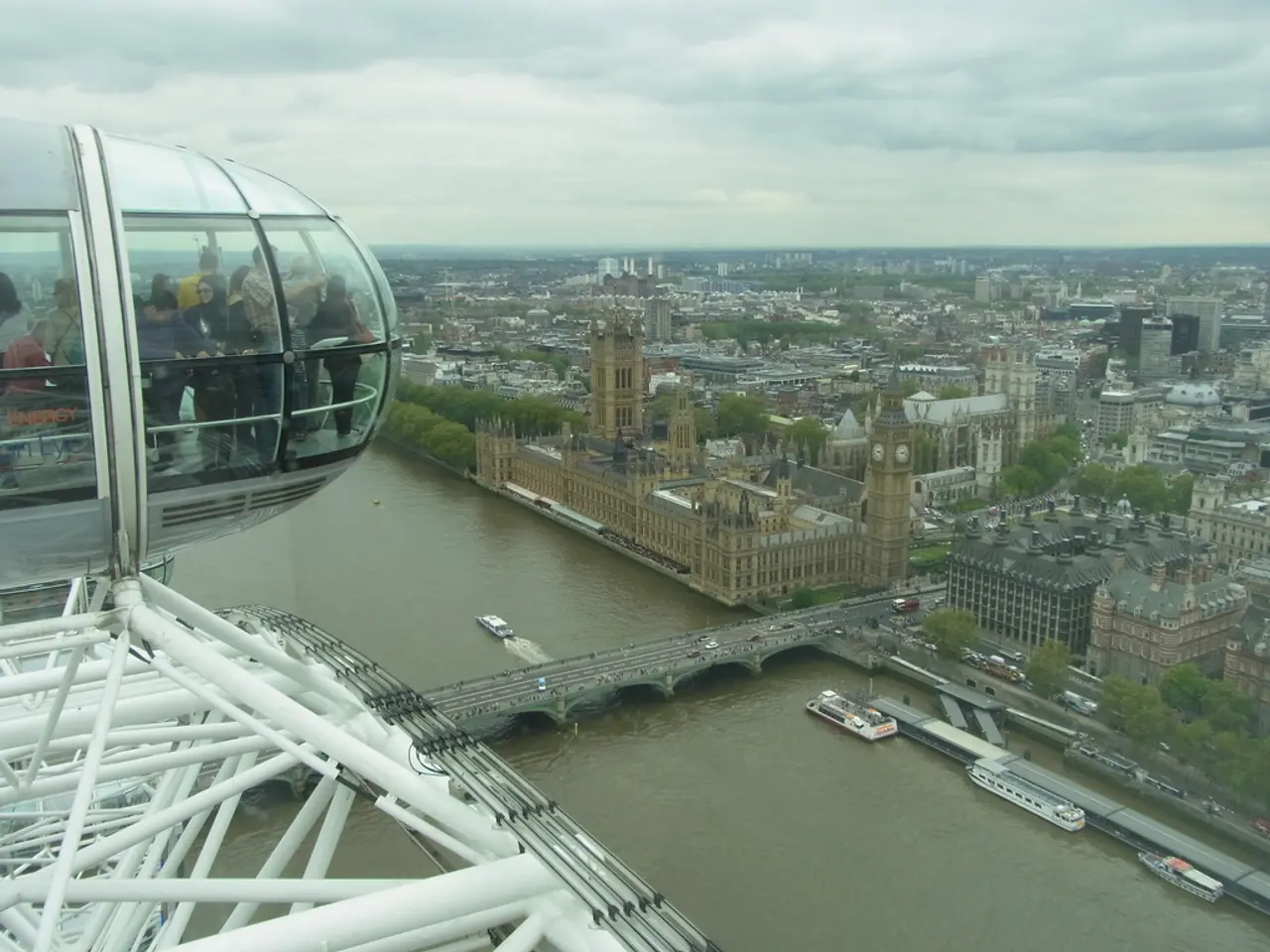Britain faces a looming financial crisis
The UK is facing a critical juncture, with experts warning of a potential slide into economic stagnation. Sir Vince Cable, an economist who has proposed a new strategic direction for the British economy, has highlighted the need to break the cycle of low growth and low productivity.
The economy is deeply imbalanced, with twin budget and current account deficits. The trend rate of growth has slowed sharply since the 2008 crisis, and the UK is now a low-growth, low-productivity, low-wage economy. To address this, a supply-side policy is being advocated, focusing on investment, innovation, infrastructure, and incentives (the four I's).
Health spending dominates spending reviews and squeezes other areas in the allocation for funds. Therefore, it needs to be controlled. However, broad-based tax reductions may prove counterproductive in the current fiscal climate and should await improving public finances. Instead, the policy aims to reverse the upward trend in the tax-take and pursue tax simplification, including removing high marginal tax rates.
The UK's economic woes are not solely due to overspending. The economy is not competitive, and the country is living beyond its means. Fiscal discipline is essential for the UK's economic recovery, including a shift from a short-term obsession with fiscal headroom to addressing longer-term trends and ensuring fiscal solvency.
Welfare spending also needs to be curtailed. This includes tightening controls on benefits, re-examining the triple lock on pensions, and addressing immigration-related issues like Indefinite Leave to Remain. Without immediate, credible action to rein in spending, contain debt, and keep inflation under control, a fiscal crisis may be looming.
A more competitive financial sector that serves both domestic growth and international markets is needed. This includes narrowing the gap in patient capital available to small and medium-sized firms. Low inflation, financial stability, and a competitive City that serves domestic growth are essential.
To boost growth, a revival of popular capitalism, encouraging more people to save, invest, and build wealth, should be central to the UK's long-term resilience. Lowering energy bills while addressing the green agenda through energy addition, not energy substitution, is proposed as a growth-boosting policy.
However, wealth taxes should be resisted as a bad policy. Debt must fall relative to GDP due to factors like an aging population, higher defense spending, and untenable public demands on government. Dr Gerard Lyons, a fellow at the Centre for Policy Studies, has also emphasised the need for savings and investment, rather than relying on tax, spend, and borrow policies.
In conclusion, a new strategic direction for the economy has been proposed, with the goal of raising GDP per capita. This direction emphasises supply-side policies, fiscal discipline, a more competitive financial sector, popular capitalism, and sustainable energy policies. Without immediate, credible action, the UK risks sleepwalking into economic torpor.
Read also:
- Trade Disputes Escalate: Trump Imposes Tariffs, India Retaliates; threatened boycott ranges from McDonald's, Coca-Cola to iPhones
- Aquatech purchases Koch's Direct Lithium Extraction business, merging Li-ProTM DLE technology into the PEARLTM Technology Platform.
- Nepal's Journey: Evolution from Street Life to Political Power
- Li Auto faces scrutiny after crash test involving i8 model and a truck manufacturer sparks controversy




